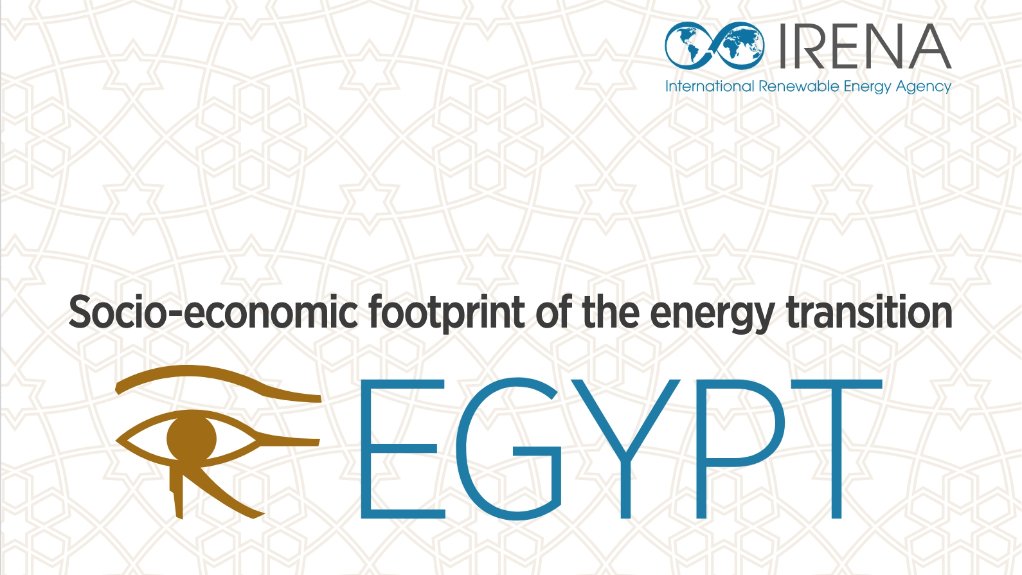- Socio-economic footprint of the energy transition: Egypt6.90 MB
This report explores the potential socio-economic impacts of the energy transition in Egypt, and shows that a successful, just and inclusive energy transition in Egypt can bring about a brighter, more prosperous and healthier future for its citizens.
Egypt is home to a population of around 110-million people, with a median age of 23.9 years in 2021. Egypt’s population growth rate and poverty rate, with 32.5% of the population living under the national poverty line in 2018, places significant fiscal and infrastructure burdens on the country’s social services. The country has been at the forefront of renewable energy deployment in Africa, particularly through its large hydro resources, tied to the River Nile. To meet its growing energy needs and contribute to job creation, Egypt has sought to develop several other forms of modern renewable energy, including through solar and wind projects, since the start of the century.
Informed by IRENA’s World Energy Transitions Outlook, this report explores the potential socio-economic impacts of the energy transition in Egypt, and shows that a comprehensive and more ambitious energy transition will lead to improved socio-economic outcomes. Over the 2021‑2050 period, under IRENA’s 1.5°C Scenario, GDP is expected to be 5.5% higher than under the Planned Energy Scenario (PES), mainly driven by trade. Moving Egypt’s energy strategy away from fossil fuels towards renewables is expected to have a substantial positive impact, adding USD 63-billion to the country’s GDP in 2050. In addition, by 2050, employment is likely to be 0.3% higher under the 1.5°C Scenario than under the PES.
To realise the benefits of the transition, however, Egypt requires a comprehensive and holistic policy framework that not only drives forward the transition of energy systems, but also protects people, livelihoods and jobs. Supportive policies tailored to the country’s socio-economic circumstances and challenges should therefore be delivered in tandem with the energy transition.
Report by the International Renewable Energy Agency
EMAIL THIS ARTICLE SAVE THIS ARTICLE ARTICLE ENQUIRY
To subscribe email subscriptions@creamermedia.co.za or click here
To advertise email advertising@creamermedia.co.za or click here











